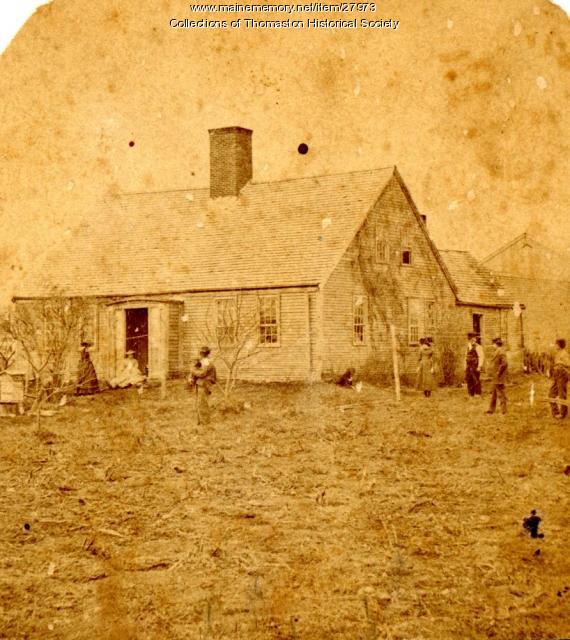Keywords: Alterations
Item 105817
Altered mourning dress, Standish, ca. 1865
Contributed by: Maine Historical Society
Date: circa 1865
Location: Standish
Media: silk, cotton, linen
This record contains 10 images.
Item 23699
Cumberland Club alterations, Portland, ca. 1906
Contributed by: Maine Historical Society Date: 1906 Location: Portland Media: Ink on paper
Item 86095
Whitney property, N. Side Lyndon Avenue, Peaks Island, Portland, 1924
Owner in 1924: Frederick T. Whitney Use: Summer Dwelling
Item 151709
Gorham Academy alterations, Gorham, 1909
Contributed by: Maine Historical Society Date: 1909 Location: Gorham Client: Gorham Academy Architect: John Calvin Stevens and John Howard Stevens Architects
Item 151520
C. L. Baxter house alterations, Portland, 1901-1945
Contributed by: Maine Historical Society Date: 1901–1945 Location: Portland Client: C. L. Baxter Architect: John Calvin Stevens
Exhibit
Northern Threads: Adaptive reuse
A themed vignette within "Northern Threads Part I," featuring up-cycled and reused historic fabrics.
Exhibit
When Europeans arrived in North America and disrupted traditional Native American patterns of life, they also offered other opportunities: trade goods for furs. The fur trade had mixed results for the Wabanaki.
Site Page
Historic Clothing Collection - Fabric Adaptive Reuse
"… custom of either themselves or their dressmakers altering and updating existing garments to keep up with constantly changing fashion."
Site Page
Historic Clothing Collection - Eighteenth Century - Page 1 of 3
"By 1825, the dress was altered and re-constructed, perhaps as a costume (known at the time as "fancy dress") in homage to the Marquis, or as an early…"
Story
What does a warming climate mean for Maine?
by David Reidmiller
Climate change affects all aspects of life. What does this mean for Maine?
Story
Ever-Changing Rules
by anonymous
A former prison volunteer describes their experience running a program on the inside.
Lesson Plan
Maine in the News: World War I Newspaper Project
Grade Level: 9-12
Content Area: Social Studies
This lesson plan is designed to introduce students to the important role that Maine played in World War I. Students will act as investigators in order to learn about the time period as well as the active role that Maine took on.

















